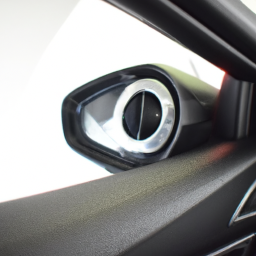
Certainly! click here for more details on the download manual…..
- Mercedes A Class Key Hidden Functions Mercedes A Class Key, Hidden Functions One popular hidden function for Mercedes A Class 2013 keys is the ability to remotely …
- Mercedes A250 W176 dyno testing – Full Supersprint Exhaust http://www.supersprint.com/ww-en/sport-exhaust-supersprint-for-mercedes-w176-a-250-4-matic-211-hp-2013.aspx Full system …
Drivetrain repair on a Mercedes-Benz A-Class A250 W176 Sport 4MATIC involves several steps and requires specific tools to ensure proper service. below is a detailed breakdown of the procedure along with the necessary tools.
### Tools Required:
– **Socket Set**: A complete metric socket set (including deep sockets) for various bolt sizes.
– **Torque Wrench**: To ensure all bolts are tightened to the manufacturer’s specifications.
– **Pliers**: For removing clips and securing hoses or wiring.
– **Screwdrivers**: A set of flathead and Phillips screwdrivers for various fastening needs.
– **Jack and Jack Stands**: To safely lift the vehicle and provide access to the undercarriage.
– **Creeper**: For comfortable access under the vehicle.
– **Transmission Jack**: To support the transmission during removal or installation.
– **Fluid Catch Pan**: To collect any leaking fluids during disassembly.
– **Brake Cleaner**: For cleaning components before reassembly.
– **Gasket Scraper**: To remove old gasket material from surfaces.
– **Replacement Fluids**: Ensure you have the correct transmission and differential fluids.
– **New Gaskets and Seals**: For any components that need to be replaced during the repair.
– **Service Manual**: For reference on torque specs, diagrams, and detailed procedures.
### Repair Procedure:
– **Diagnose the Issue**:
– Thoroughly inspect the vehicle for symptoms such as unusual noises, vibrations, or warning lights that indicate drivetrain problems.
– Use diagnostic tools to read error codes from the vehicle’s computer.
– **Lift the Vehicle**:
– Use a jack to lift the vehicle and secure it with jack stands for safety.
– Ensure that you have adequate space to work under the vehicle.
– **Remove the Underbody Covers**:
– If applicable, remove any plastic underbody covers to gain access to the drivetrain components.
– Use a socket set to remove the screws or clips holding the covers in place.
– **Drain the Transmission Fluid**:
– Position a fluid catch pan under the transmission and remove the drain plug.
– Allow the fluid to fully drain before proceeding.
– **Inspect and Remove the Driveshaft**:
– Check for any signs of wear or damage on the driveshaft.
– Use a socket set to remove the bolts securing the driveshaft to the transmission and differential.
– Carefully slide the driveshaft out of the transmission.
– **Remove the Transmission**:
– Support the transmission with a transmission jack.
– Disconnect any electrical connectors, shift linkage, and fluid lines attached to the transmission.
– Remove the mounting bolts securing the transmission to the engine and gently lower the transmission.
– **Inspect Transmission Components**:
– Check for any visible damage or wear, such as broken gears, worn clutches, or leaking seals.
– Replace any damaged or worn components.
– **Reassemble the Drivetrain**:
– Install new gaskets and seals where necessary.
and seals where necessary.
– Reattach the transmission to the engine, securing it with the mounting bolts to the specified torque.
– Reconnect the driveshaft, ensuring it is properly aligned and secured.
– **Refill Transmission Fluid**:
– Replace the drain plug and refill the transmission with the specified fluid type and amount as per the service manual.
– **Reinstall Underbody Covers**:
– Once all components are secured and fluids are filled, reinstall any underbody covers that were removed.
– **Lower the Vehicle**:
– Carefully lower the vehicle back to the ground using the jack and remove the jack stands.
– **Test Drive the Vehicle**:
– Take the vehicle for a short test drive to ensure that the drivetrain operates smoothly.
– Listen for any unusual noises or vibrations that may indicate further issues.
– **Final Inspection**:
– After the test drive, inspect for any fluid leaks or abnormal noises.
– Double-check all fluid levels and ensure everything is functioning correctly.
### Safety Tips:
– Always wear safety glasses and gloves when working on vehicles.
– Ensure the vehicle is on a flat surface and securely supported before working underneath it.
– Dispose of any fluids and parts according to local regulations.
This guide provides an overview of the steps involved in drivetrain repair on a Mercedes-Benz A-Class A250 W176 Sport 4MATIC. Always consult the specific service manual for your vehicle for detailed specifications and procedures.
The transmission fluid dipstick is a crucial component of a vehicle’s transmission system, serving as a diagnostic and maintenance tool. Typically made of metal or durable plastic, the dipstick is designed to measure the level and condition of the transmission fluid, which is essential for ensuring optimal performance and longevity of the transmission.
Located under the hood, often near the back of the engine compartment, the dipstick is usually marked with a brightly colored handle for easy identification. To check the transmission fluid level, the driver must first ensure the vehicle is parked on a level surface and, in many cases, the engine should be running. By removing the dipstick, the user can wipe it clean, reinsert it, and then pull it out again to observe the fluid level. The dipstick typically has markings indicating the optimal fluid range, allowing the user to determine if the fluid is at an appropriate level.
In addition to measuring fluid level, the dipstick also provides insights into the fluid’s condition. Healthy transmission fluid is typically a clear red color and has a slightly sweet smell. If the fluid appears dark or has a burnt odor, it may indicate overheating or contamination, suggesting that a fluid change or further inspection of the transmission is necessary. Regularly checking the transmission fluid dipstick is vital for preventing transmission issues, ensuring smooth gear shifts, and prolonging the life of the vehicle’s transmission system.